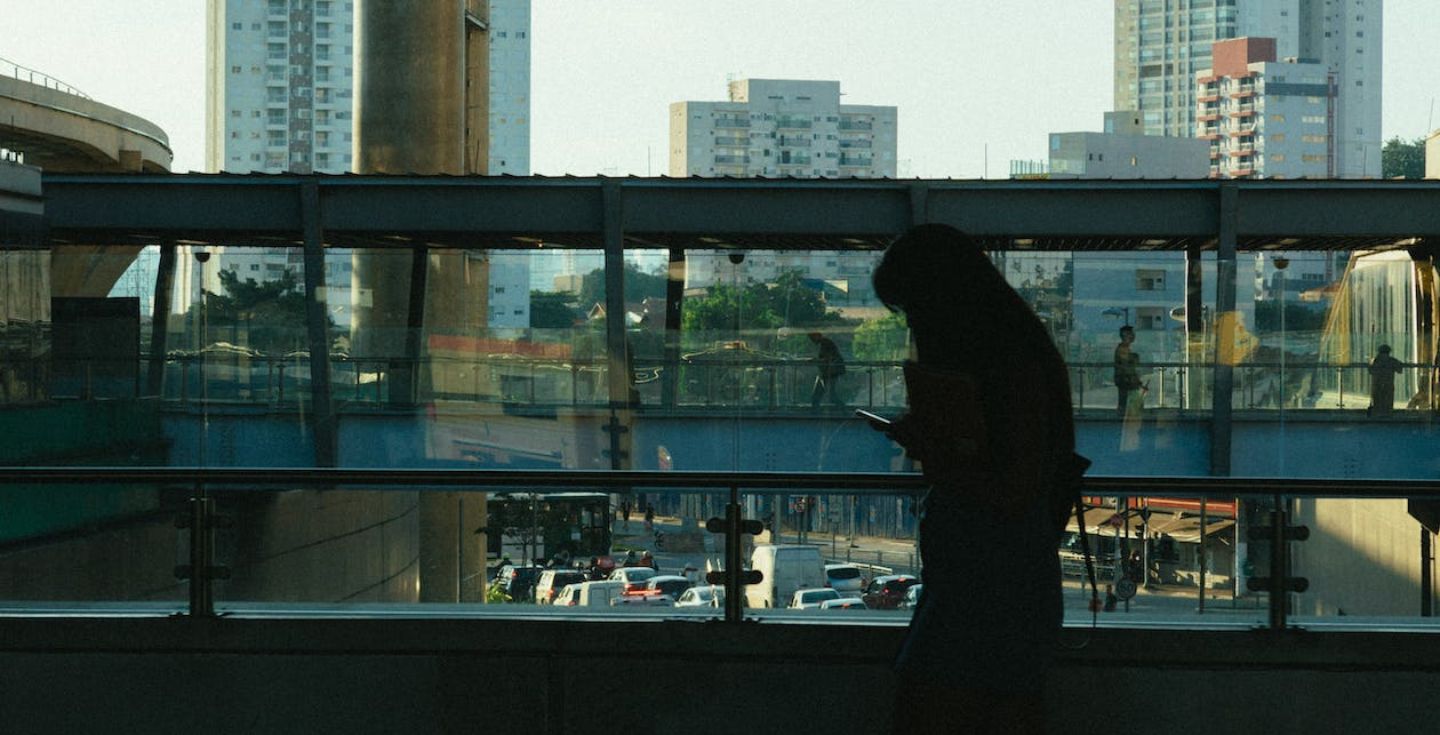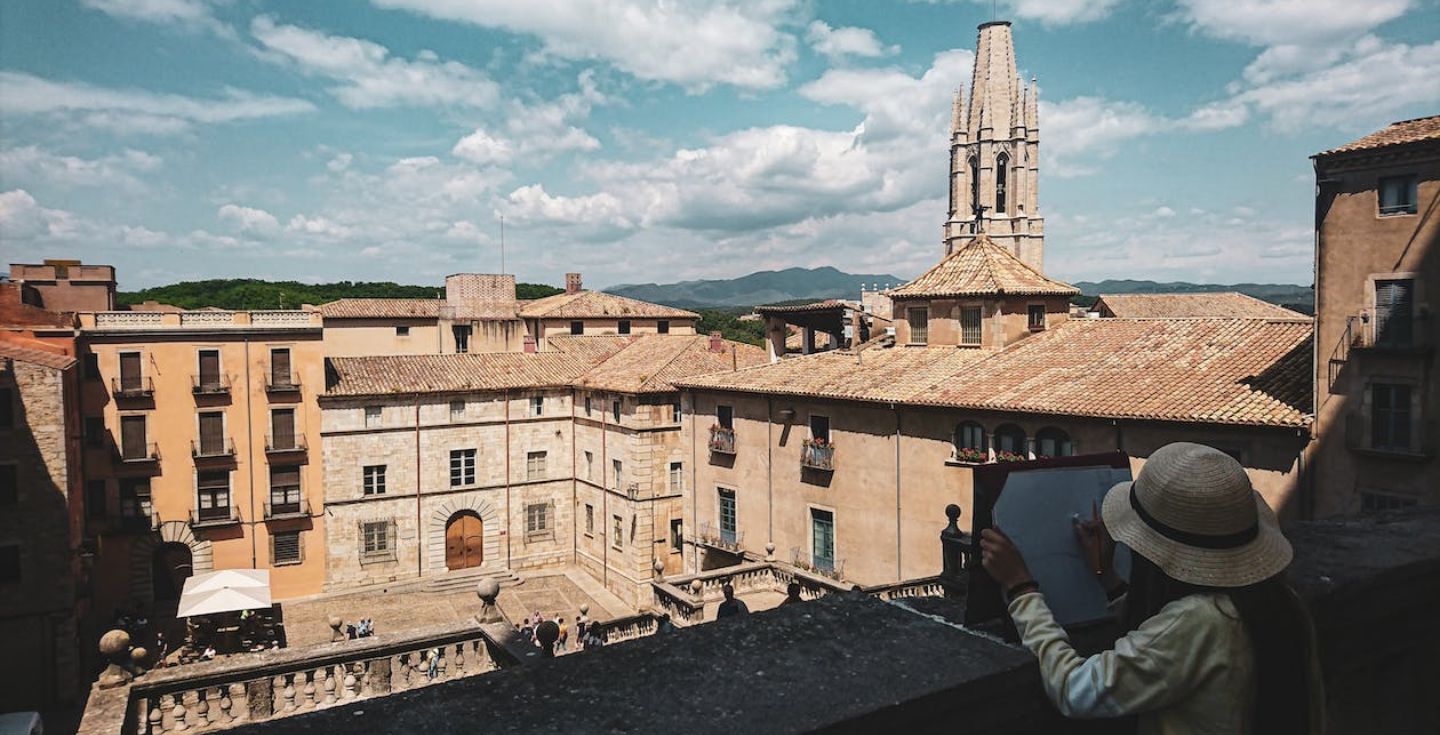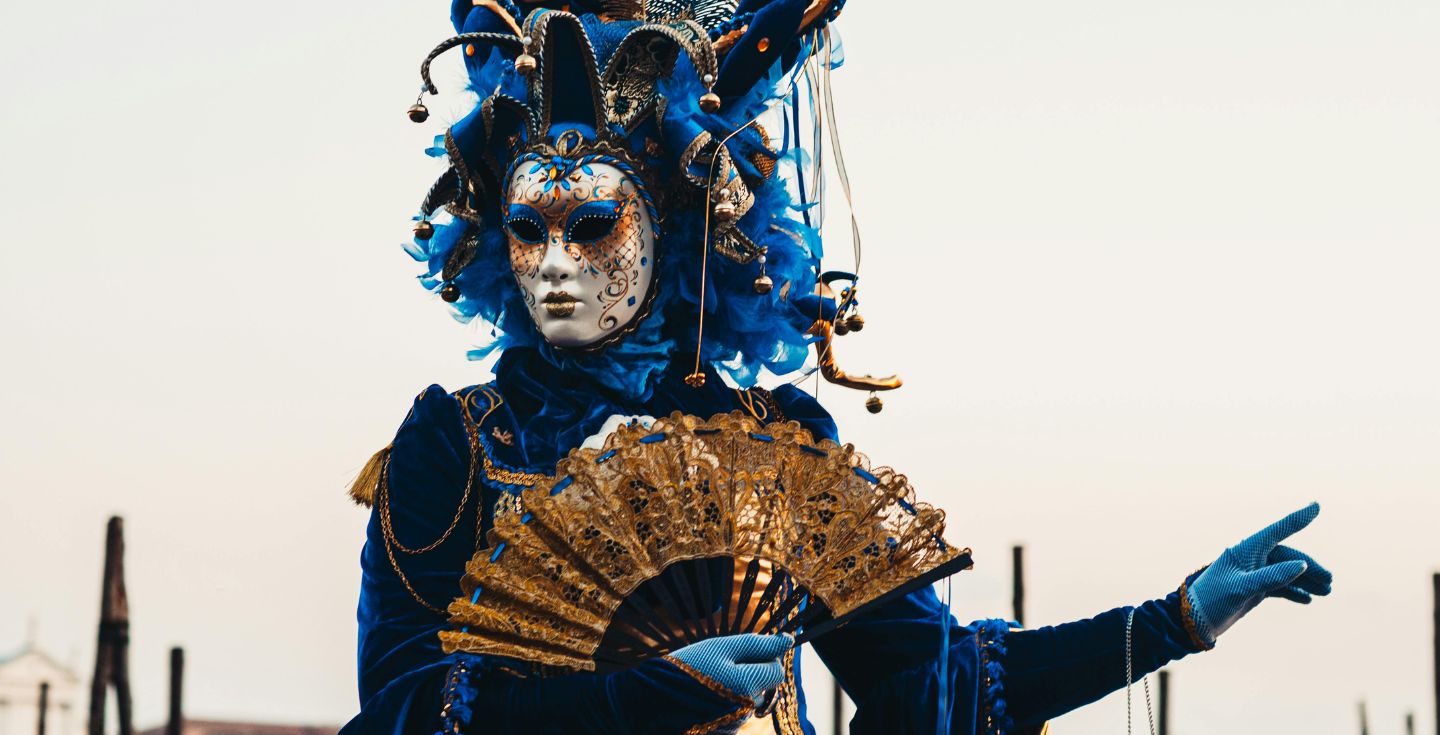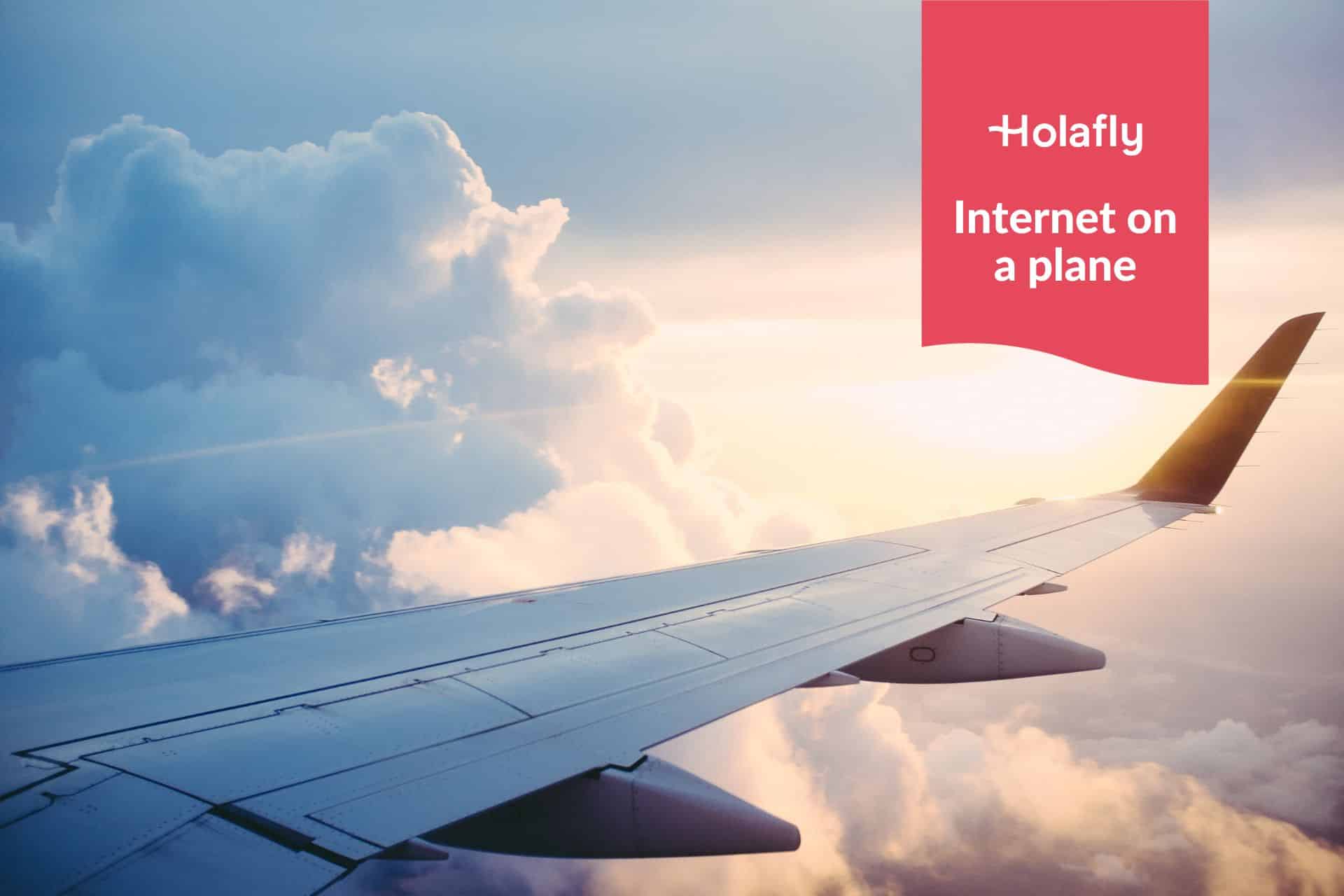Safest countries in Africa: 6 secure destinations to visit in 2026
Discover the safest countries in Africa, as ranked by the Global Peace Index. Explore secure destinations with low crime rates and thriving tourism.
Africa is a vast and incredibly diverse continent, and safety levels, like anywhere else, can vary from region to region. However, Africa is home to many popular and secure destinations with well-developed tourism infrastructure, reliable transport, and a welcoming atmosphere for visitors.
Several African nations rank among the safest in the world according to the Global Peace Index (GPI), which assesses crime rates, political stability, and safety indicators globally.
Using the GPI to guide us, we’ve compiled a list of the safest countries in Africa—each renowned for their thriving tourism industries and commitment to visitor security.
1. Mauritius
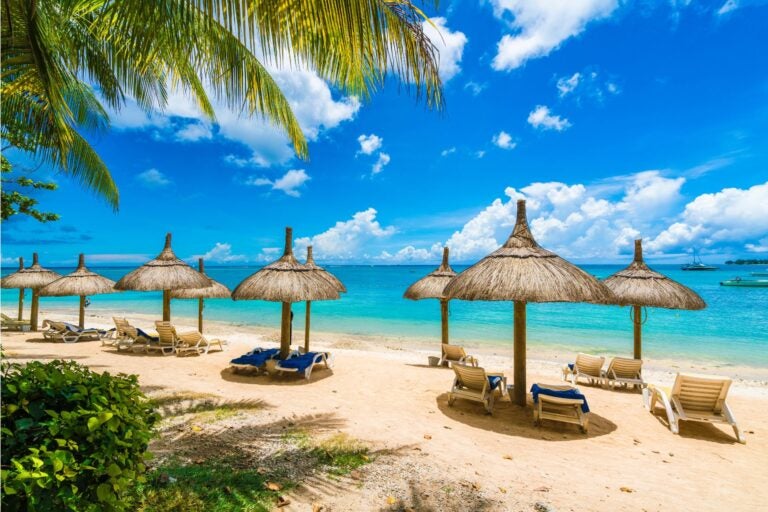
Mauritius, an enchanting island nation in the Indian Ocean, is celebrated for its crystal-clear lagoons and powdery mix of Creole, French, Indian, and Chinese cultural influences reflected in its cuisine, festivals, and architecture. The island’s commitment to marine conservation is evident in its protected coral reefs, making it a haven for snorkeling and diving enthusiasts.
Why it’s safe:
Mauritius is ranked as the safest country in Africa with an overall GPI score of 1.577. This ranking reflects its low crime rates, political stability, and absence of internal conflict, which are key factors assessed in the rankings.
The country’s well-functioning government contributes to its safety, ensuring residents and tourists enjoy a secure environment. The US Department of State categorizes Mauritius as a Level 1 destination, advising travelers to simply “exercise normal precautions”—a recognition of the island’s peaceful and welcoming atmosphere.
Tourist safety tips:
- Secure luggage storage: Major hotels in tourist hubs like Grand Baie and Flic en Flac offer secure luggage storage and concierge services—ask at check-in if you need to explore unburdened.
- Reliable pickup points: Reputable tour experiences, such as dolphin watching or island excursions, typically depart from well-known hotel lobbies or established travel agencies rather than street stalls.
- Avoid unofficial operators: If approached on the streets or at informal kiosks for tours, steer clear—booking directly through your hotel or a recommended agency ensures safer experiences.
Highlights:
- Black River Gorges National Park: Hikers and nature lovers can explore this expansive natural reserve’s 6,574 hectares of trails and wildlife.
- Pristine beaches: Beach lovers can stroll along the scenic 2-kilometer stretch of white sand or go snorkeling at Grand Baie Beach.
- Cultural experiences: Head out and explore the capital city of Port Louis and visit the bustling Central Market, or admire the stunning views from the Fort Adelaide military fortress.
2. Tunisia
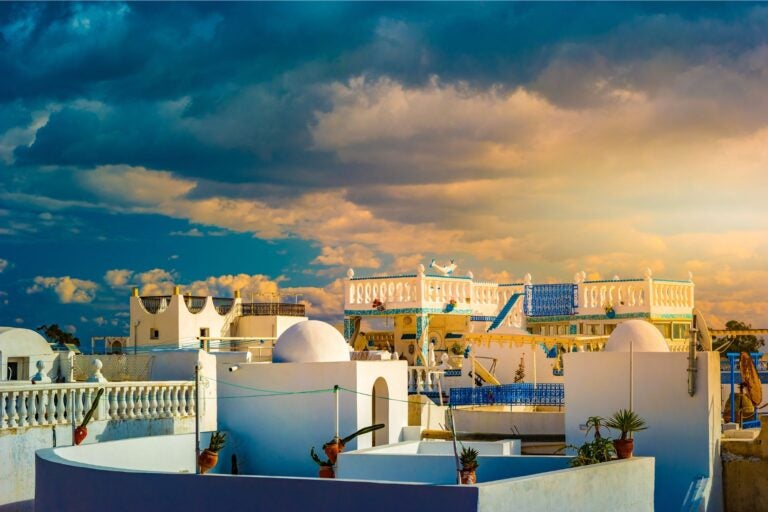
Tunisia, located in North Africa, seamlessly blends ancient history with Mediterranean charm. Visitors can explore the ancient ruins of Carthage, wander through the medinas of Tunis, or relax on the sandy beaches of Djerba. The country’s varying landscapes include the vast Sahara Desert, which offers unique experiences like camel trekking and stargazing.
Why it’s safe:
Despite being in a region with occasional unrest, Tunisia ranks as the 6th safest country in Africa, with an overall score from the Global Peace Index of 2.044. This score reflects the country’s relatively low violent crime rates and efforts to maintain public order—all key factors measured in the Index.
Tunisia’s moderate crime index of 44.6 further highlights its commitment to safety, particularly in well-monitored tourist areas. Additionally, the government has focused on improving road safety and law enforcement, ensuring visitors can confidently explore its rich history and Mediterranean landscapes.
Tourist safety tips:
- Watch out for petty theft: Stay vigilant in crowded medinas like Sousse to avoid pickpocketing.
- Dress respectfully: Tourists should respect local dress codes in conservative areas. Women should cover their shoulders and knees and carry a scarf for mosque visits, while men should avoid overly casual attire (e.g., ripped shorts).
- Use caution when driving: Stick to the main roads when traveling by car in major cities such as Tunis and Hammamet.
Highlights:
- Ruins of Carthage: These ruins are a must for enthusiasts of the ancient Phoenician civilization.
- Sidi Bou Said: This charming cobblestreet village, known for its blue and white architecture and quaint art galleries, should be on every art lover’s list.
- Djerba Island: Be sure to visit this blue-water, picturesque island, famed for its beautiful beaches and Berber, Arab, Jewish and African cultural influences.
3. Seychelles
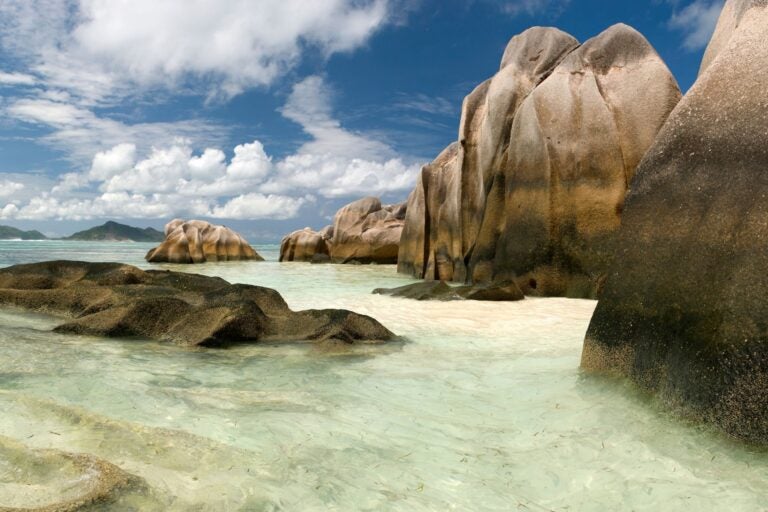
The Seychelles archipelago, comprising 115 islands in the Indian Ocean, is famed for its unspoiled beaches, crystal-clear waters, and unique biodiversity. Home to numerous nature reserves and marine parks, Seychelles offers opportunities to witness rare animal species like the Aldabra giant tortoise and vibrant coral ecosystems. Its commitment to environmental preservation makes it a paradise for eco-conscious travelers and nature lovers.
Why it’s safe:
Seychelles maintains a stable and secure environment supported by low corruption, strong governance, and effective law enforcement. Recently, the country was ranked as Africa’s least corrupt country, reinforcing its reputation for stability and public safety. The country’s small population and high standard of living also contribute to lower crime rates.
Violent crime is rare, but petty theft is the most common concern for travelers, particularly in busy tourist areas. The US Department of State classifies Seychelles as a Level 1 destination, advising visitors to exercise standard precautions. With a visible police presence and well-maintained public spaces, Seychelles offers travelers a secure environment.
Tourist safety tips:
- Never underestimate the ocean: Beware of strong currents at Anse Intendance beach; families may prefer the calm waters of Beau Vallon, which is popular for snorkeling and sunsets.
- Buy through official tour providers: Use licensed and reputable tour operators like Masons Travel to book amazing experiences.
- Take care with the local biodiversity: Be aware of protected nature reserves and marine life to avoid breaching the country’s Protected Areas Policy.
Highlights:
- Anse Source d’Argent: Visit one of the world’s most photographed beaches, known for its striking granite boulders and serene waters.
- Vallée de Mai Nature Reserve: Discover a UNESCO world heritage site, home to the rare coco de mer palm.
- Saint-Anne Marine National Park: Explore the varied marine life inhabiting the six islands of this national park.
4. Tanzania
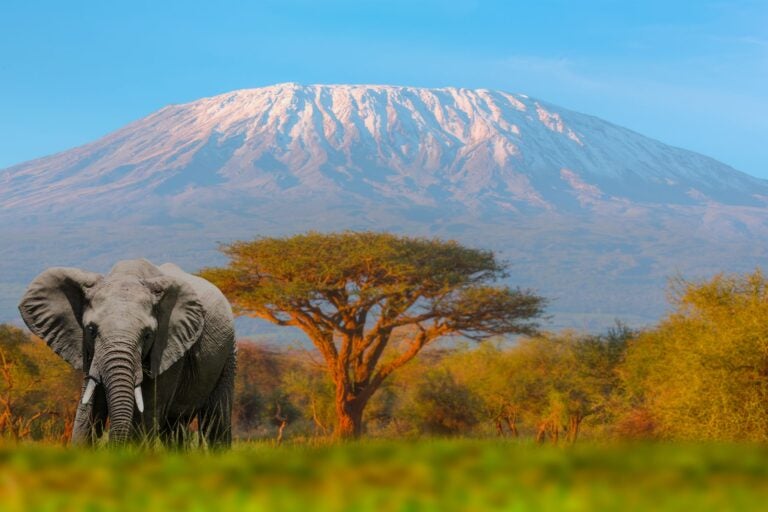
Tanzania, one of the cheapest African countries to visit, offers a quintessential African experience, boasting world-renowned attractions like Serengeti National Park, Mount Kilimanjaro, and the Zanzibar archipelago. The country’s rich cultural tapestry includes over 120 ethnic groups, providing visitors a diverse and enriching experience. Tanzania’s commitment to conservation is evident in its numerous protected areas and wildlife corridors.
Why it’s safe:
Tanzania, with a Global Peace Index score of 1.987, is ranked the 7th safest country in Africa due to its low levels of internal conflict and strong security presence in key tourist areas. The Index, which measures safety based on crime rates, political stability, and militarization, gives Tanzania a good rating.
Although the US Department of State advises “increased caution” (Level 2) due to isolated crime, Tanzania ensures a safe experience for visitors through well-regulated safari tourism, secure national parks, and eco-tourism initiatives. Furthermore, the country’s commitment to conservation means tourists are often accompanied by experienced guides, which further enhances security.
Tourist safety tips:
- Take care after dark: Avoid walking alone in Dar es Salaam at night.
- Book official taxis and lift shares: In Tanzania, especially in Dar es Salaam, tourists should consider using Uber for reliable and safe transportation with licensed drivers.
- Use well-known tour operators: Book tours and experiences with well-known companies such as AndBeyond for guided wildlife safaris. This company offers expert-led tours to national parks like the Serengeti.
Highlights:
- Serengeti National Park: Witness the Great Migration and diverse wildlife in vast savannahs.
- Mount Kilimanjaro: Challenge yourself with a trek up Africa’s highest peak!
- Zanzibar: Relax on idyllic beaches and explore historic Stone Town.
5. Zambia
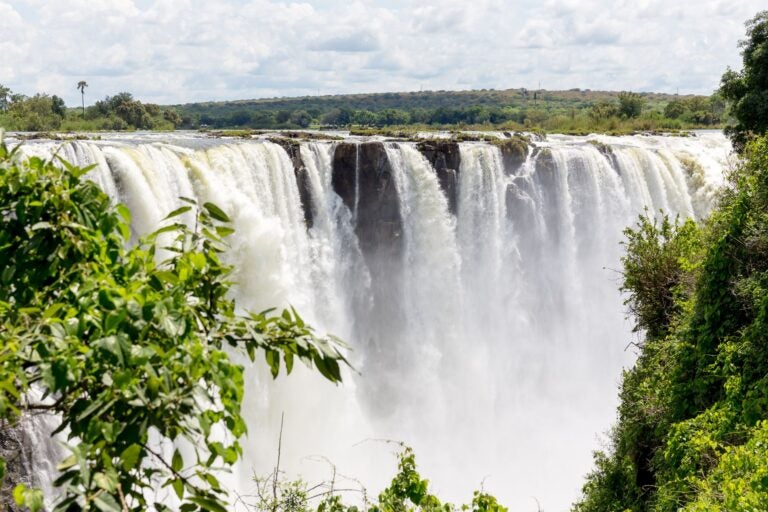
Zambia, located in Southern Africa, is renowned for its natural beauty and wildlife. The country is home to the majestic Victoria Falls, one of the Seven Natural Wonders of the World, and offers thrilling activities like white-water rafting and bungee jumping. Zambia’s national parks, such as South Luangwa and Kafue, provide some of the best safari experiences.
Why it’s safe:
Zambia, with its low violent crime rates and peaceful social environment, is ranked 5th among Africa’s most peaceful nations and has an overall Global Peace Index score of 1.948. Zambia’s general political stability and well-regulated eco-tourism industry further increase its safety, making it an ideal destination for tourists.
Due to minimal security concerns, the US Department of State has designated Zambia as a Level 1 travel destination. Visitors can expect a safe and enjoyable experience, whether they are exploring Victoria Falls or Zambia’s national parks.
Tourist safety tips:
- Book official tours: When exploring South Luangwa or Kafue National Parks, choose a reputable tour operator with well-known meeting points or hotel pickups.
- Practice usual caution in bigger cities: Exercise caution when walking around in busy urban centers. In Lusaka or Ndola, keep a close eye on your belongings to reduce the risk of theft.
- Consider your travel routes: Avoid traveling to border areas near the Democratic Republic of Congo (DRC) or Angola due to potential security risks.
Highlights:
- Victoria Falls: Set your eyes on one of the Seven Natural Wonders of the World, offering breathtaking views and adventure activities.
- South Luangwa National Park: Situated in east Zambia’s Luangwa River valley, this park teems with wildlife, including hippos and various bird species.
- Chobe National Park: The park is well-known for its large herds of elephants and Cape buffalo sightings.
6. Morocco
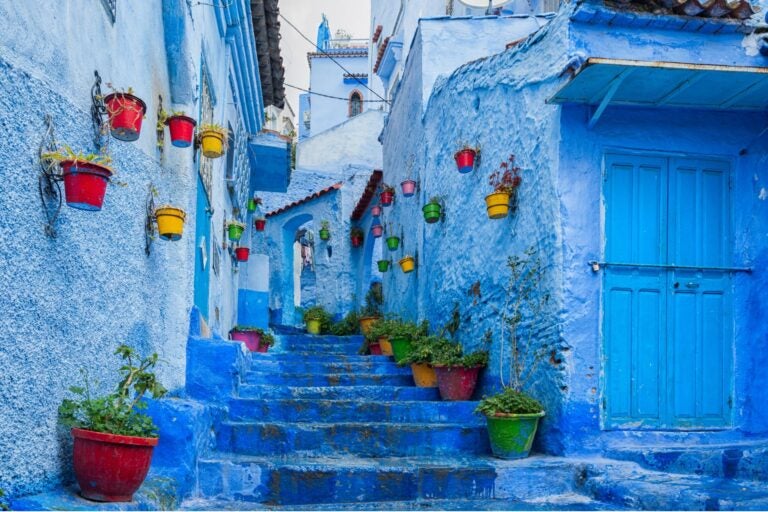
Morocco, a gateway between Africa and Europe, is a land of striking contrasts, where ancient traditions blend with contemporary influences. It’s also a popular destination for a summer vacation and one of the hottest places to visit in June. From the maze-like medinas of Fez and Marrakech to the beaches of Agadir, Morocco captivates visitors with its vibrant souks, intricate tilework, and the warm hospitality of its people.
Its landscapes range from the sweeping dunes of the Sahara Desert to the snow-capped Atlas Mountains, offering breathtaking hikes and Berber village encounters. The bustling Jemaa el-Fnaa square in Marrakech, a UNESCO-recognized cultural space, serves as a sensory delight with street performances, fragrant spice markets, and traditional Moroccan cuisine such as tagines and pastilla.
Why it’s safe:
With its rich cultural heritage and bustling tourism sector, Morocco ranks as the 7th safest country in Africa, with an overall score of 2.054. This score reflects its strong law enforcement presence, political stability, and relatively low levels of violent crime—all key indicators in the Global Peace Index.
While petty crime, such as pickpocketing, can occur in busy tourist areas, Morocco maintains a visible police force and well-monitored public spaces, ensuring a generally safe environment for travelers. Visitors are advised to take standard precautions, but overall, Morocco’s commitment to safety makes it one of North Africa’s most secure travel destinations.
Tourist safety tips:
- Watch your belongings: Beware of pickpockets in the major cities like Marrakech and Fez.
- Use trusted companies: Book tours with a trusted tour operator recommended by your accommodation to avoid scams.
- Consider religious customs: When visiting places of worship or exploring the streets, show respect by dressing modestly; this may include covering your knees and shoulders and avoiding overly casual attire.
Highlights:
- Marrakech’s colorful souks and historic sites: Marrakech is a feast for the senses, with its labyrinthine souks offering handcrafted goods, aromatic spices, and colorful textiles. The city’s historical treasures include the Bahia Palace, the Saadian Tombs, and the Koutoubia Mosque.
- Sahara Desert: Embark on camel treks across the golden dunes of Erg Chebbi.
- Erg Chigaga: Known as Morocco’s “Blue Pearl,” Chefchaouen is famous for its picturesque blue-painted buildings set against the rugged Rif Mountains.
General safety tips for staying safe in Africa
While these six countries are among the safest and most peaceful countries in Africa to travel to, it’s important to consider these general precautions:
- Book official tours for safety and reliability: Opt for licensed and reputable tour operators when booking excursions, safaris, or city tours. This ensures a well-organized and authentic experience and minimizes the risk of scams or safety concerns. Always verify credentials and read reviews before making reservations.
- Stay connected with an eSIM for seamless navigation and emergencies: Reliable communication is essential for traveling safely. Consider using a travel eSIM to maintain access to map navigation, emergency contacts, and online resources without relying on public WiFi. Having a working phone can be crucial in case of unexpected situations.
- Follow local advice and respect cultural customs: Every country has its cultural norms and etiquette. Learn about regional traditions, dress codes, and greetings to ensure respectful interactions. Engaging with locals respectfully enhances your travel experience and helps build positive connections.
- Avoid walking alone in unfamiliar areas at night: While many African cities are open and welcoming, certain areas may be less safe after dark. Stick to well-lit, busy streets, and consider using trusted ride-hailing services or hotel transportation when traveling at night. If exploring nightlife, always have a plan for returning safely to your accommodation.
Explore the safest countries in Africa hassle-free with Holafly
To ensure continued connection right off the bat when landing at your chosen destination in Africa, get yourself Holafly’s Africa eSIM before you fly.
With Holafly, you can stay connected across 28 African countries, ensuring reliable internet without the hassle of physical SIM cards. Whether exploring Serengeti National Park, hiking in Volcanoes National Park, or visiting Victoria Falls, Holafly provides unlimited data, easy setup, and strong connectivity across Africa’s safest destinations. Say goodbye to expensive roaming charges and travel stress-free with seamless online access throughout your journey. Get your Holafly eSIM today and experience the best African countries with peace of mind!





 Language
Language 


















 No results found
No results found





